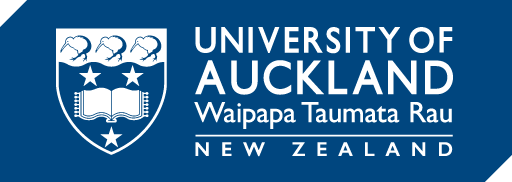by Mark C. Wilson | Mar 18, 2014
Speaker: Arkadii Slinko
Affiliation: The University of Ackland
Title: Swensson’s theorem and its failed generalisations
Date: Tuesday, 25 Feb 2014
Time: 5:00 pm
Location: Room 412, Science Centre (303)
Swensson’s theorem is one of the many impossibility theorems in mathematical economics. These impossibility theorems give you an idea of what is possible and what is impossible to achieve. Imagine that you have to allocate state houses to families who need them and that those families have preferences on the set of houses. What should the allocation mechanism be? Swensson (1999) proved that if we impose just three simple desirable properties on the allocation mechanism we will be left only with a serial disctatorship under which a random queu (permutation) will be chosen and each family will be asked to choose their house when their term in the queue comes.
During Piotr Skowron’s visit in January we tried to generalise Swensson’s theorem to more general class of mechanisms called social assignment rules. We produced a bunch of counterexamples instead. In my talk I will prove Swensson’s theorem and present our counterexamples.
by Mark C. Wilson | Feb 16, 2014
* What: informal CMSS workshop to discuss methodology for social network analysis, and try to build a community at UoA in this area
* Where/When: Monday 17 Feb in Room 303.561 (Maths/Physics Building, corner Wellesley St and Princes St)
* Advice for speakers: Informal talks without slides are OK. There is a whiteboard. Slides are also OK, in fact preferred slightly – please bring them on a flash drive or similar. The key idea is to find common ground for interdisciplinary research, so please focus on the questions and methodology, not your research results. Basic questions to answer: who are you, where are you from, where social networks arise in your research area, what methodology have you been using to study them, which methodological expertise that you don’t have would benefit your research?
* Approximate schedule:
0900-1030 session 1
Patrick Girard (Philosophy, School of Humanities)
Nelson Aguirre (School of Population Health)
David Welch (Department of Computer Science)
Lorenzo Ductor (Massey-Albany, School of Economics and Finance)
Jenny Long (Department of Psychology)
1030-1100 Informal discussion (catering provided)
1100-1230 session 2
Mark Wilson (CMSS, Dept of Computer Science)
Dion O’Neale (Department of Physics)
Holly Darling (Claremont Graduate University, Education)
Yun Sing Koh (Department of Computer Science)
Quentin Atkinson (Department of Psychology)
1230-1330 lunch (self-organized)
Afternoon (will include spontaneous breaks)
1330-1400 brainstorming
1400-1500 small group discussions
1500-1600 report back and wrap up
by Mark C. Wilson | Oct 23, 2013
Speaker: Andy Philpott (Department of Engineering Science)
Topic: A Primer on Supply-Function Equilibrium
When: 2:30-3:30, Tuesday 29 October
Where: Room 5115, OGGB
Abstract: Supply function equilibrium models arise when agents offer a schedule of prices and quantities to an auction for a single divisible good. They were first developed in the setting of treasury auctions, but have become useful models for studying auctions of electricity, where uncertainty plays a key role. This talk will attempt to give an elementary account of supply function equilibrium, focusing on the mathematics underlying the model.
Slides are available.
by Mark C. Wilson | Oct 20, 2013
Speaker: Matthew Ryan (Department of Economics)
Topic: Belief Functions (Part II)
When: 2:30-3:30, Tuesday 22 October
Where: Room 5115, OGGB
Abstract:
Belief functions generalise the notion of probability by relaxing additivity, while retaining a weaker property called infinite monotonicity. Belief functions allow us to quantify beliefs in a manner which is sensitive to the strength of the evidential support. I’ll focus on how to update such beliefs; more generally, how to perform statistical inference when the prior is described by a belief function. Many puzzles and problems arise when considering the issue of updating/inference. This talk will be informal (i.e., ill-prepared!) and will raise questions rather than provide answers.
by Mark C. Wilson | Oct 12, 2013
Speaker: Shaun White (PhD student, Department of Mathematics)
Topic: William Riker’s “Liberalism Against Populism”
When: 2:30-3:30, Tuesday 15 October
Where: Room 5115, OGGB
Abstract:
I will give an overview of William Riker’s “Liberalism Against Populism”. William Riker was a hugely influential political scientist. His “Liberalism Against Populism” (1982) is often said to be his seminal work. In it, Riker explores the implications of social choice theory for the theory of democracy. He argues that there are two ways to interpret voting. According to the liberal interpretation we vote merely to restrain elected officials. According to the populist interpretation we vote so that we can establish the general will of the electorate. Riker claims that the results of social choice theory imply that we must reject the populist interpretation. I will outline Riker’s reasoning. I will also discuss the very robust response made by Gerry Mackie (Democracy Defended, 2003).
Slides are available.

Recent Comments